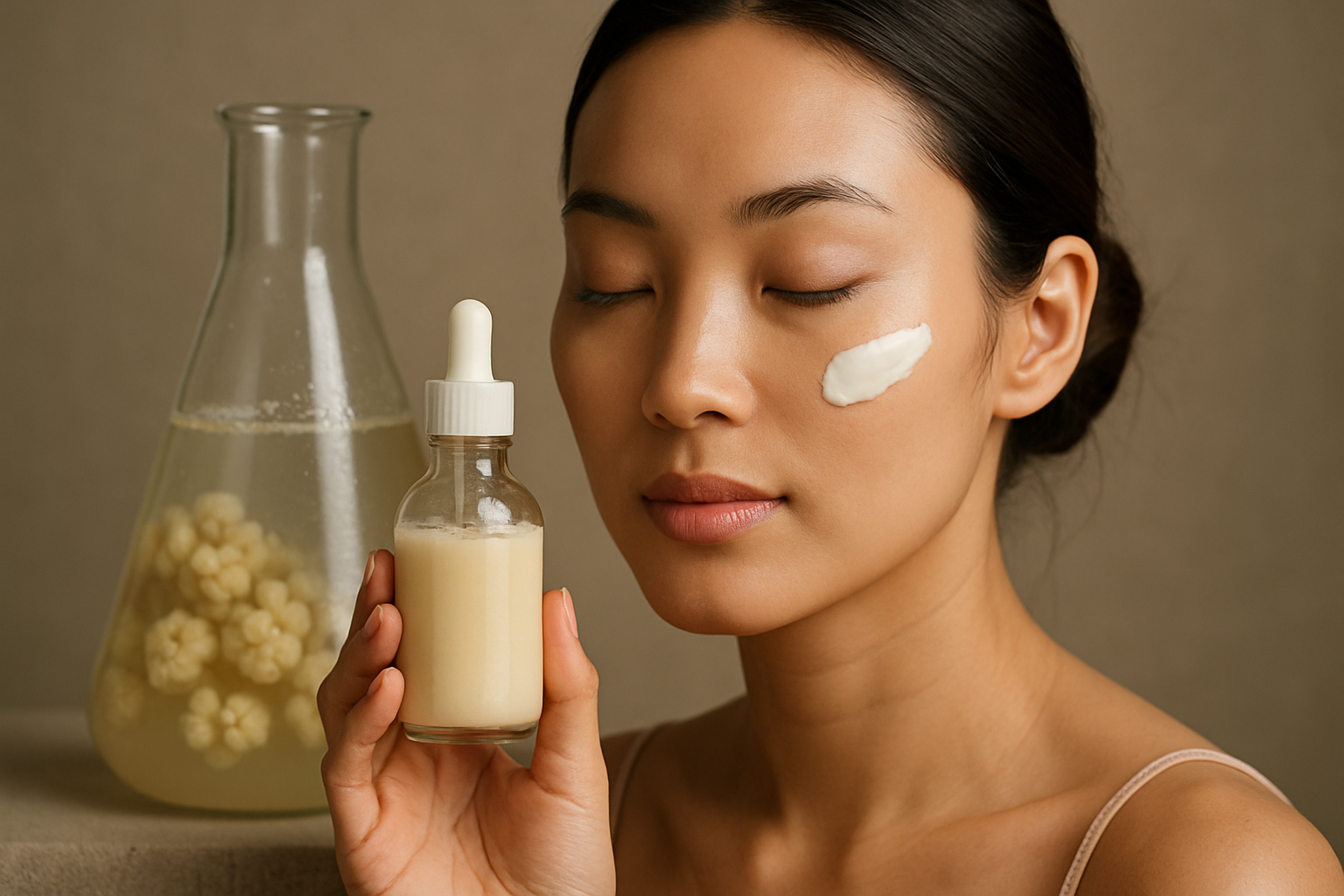Fermented Skincare: The Next Frontier in Beauty
In the ever-evolving world of beauty and skincare, a fascinating trend is emerging from an unexpected source: fermentation. This ancient process, long associated with food and beverage production, is now making waves in the skincare industry. Fermented skincare products are gaining traction among beauty enthusiasts and experts alike, promising a new level of efficacy and natural potency. This innovative approach harnesses the power of beneficial microorganisms to transform already potent ingredients into supercharged skincare solutions. As consumers increasingly seek out natural, sustainable, and effective beauty products, fermented skincare is poised to become the next big thing in the quest for radiant, healthy skin.

The fermentation process offers several advantages for skincare formulations:
-
Increased bioavailability: Fermentation breaks down large molecules into smaller ones, making it easier for the skin to absorb and utilize the active ingredients.
-
Enhanced potency: The fermentation process can increase the concentration of beneficial compounds, such as antioxidants and vitamins, resulting in more potent skincare products.
-
Natural preservation: Fermented ingredients often have a lower pH, which can help preserve the product naturally without the need for synthetic preservatives.
-
Probiotic benefits: Some fermented skincare products contain live probiotic cultures, which may help support the skin’s microbiome and overall health.
Historical Context and Cultural Roots
While fermented skincare may seem like a new trend in the Western beauty industry, it has deep roots in traditional Asian skincare practices. For centuries, Korean and Japanese beauty rituals have incorporated fermented ingredients like rice water, soy, and various herbs.
In Korea, the use of fermented ingredients in skincare can be traced back to the Three Kingdoms period (57 BC - 935 AD). Women of the royal court were known to use fermented rice water to cleanse and brighten their skin. This practice evolved over time, with various fermented ingredients being incorporated into beauty routines.
Similarly, in Japan, the tradition of using fermented ingredients in skincare is closely tied to the country’s rich fermentation culture in food and beverages. Sake brewers noticed that their hands remained soft and youthful despite constant exposure to the fermentation process, leading to the development of sake-based skincare products.
Key Ingredients in Fermented Skincare
Fermented skincare products utilize a wide range of ingredients, each offering unique benefits for the skin. Some popular fermented ingredients include:
-
Rice: Fermented rice water is rich in vitamins, minerals, and amino acids. It’s known for its brightening and anti-aging properties.
-
Soy: Fermented soy extract is high in isoflavones, which can help improve skin elasticity and reduce the appearance of fine lines.
-
Green tea: When fermented, green tea’s antioxidant properties are enhanced, offering superior protection against free radical damage.
-
Ginseng: Fermented ginseng is believed to have increased anti-aging and skin-firming effects compared to its non-fermented counterpart.
-
Fruit extracts: Fermented fruit extracts, such as those from berries or citrus fruits, can provide a potent dose of vitamins and antioxidants.
Benefits of Fermented Skincare
Proponents of fermented skincare claim a wide range of benefits, many of which are supported by emerging scientific research:
-
Improved hydration: Fermented ingredients often produce natural humectants that can help the skin retain moisture more effectively.
-
Enhanced skin barrier function: Some fermented ingredients have been shown to support the skin’s natural barrier, helping to protect against environmental stressors.
-
Anti-aging effects: The increased potency of antioxidants in fermented ingredients may help combat signs of aging more effectively.
-
Soothing properties: Many fermented ingredients have anti-inflammatory properties, making them suitable for sensitive or reactive skin types.
-
Brightening effects: Certain fermented ingredients, like rice water, are known for their ability to even out skin tone and promote a brighter complexion.
Incorporating Fermented Skincare into Your Routine
For those interested in exploring the world of fermented skincare, there are several ways to incorporate these products into an existing skincare routine:
-
Start with a fermented essence: Essences are a staple in Korean skincare routines and often feature fermented ingredients. They can be applied after cleansing and before moisturizing to boost hydration and deliver active ingredients.
-
Try a fermented serum: Serums are concentrated formulations that can target specific skin concerns. Look for fermented versions of popular ingredients like vitamin C or hyaluronic acid for enhanced efficacy.
-
Experiment with fermented sheet masks: Sheet masks infused with fermented ingredients can provide an intensive treatment and are an easy way to introduce fermented skincare into your routine.
-
Consider a fermented cleansing oil: Oil cleansers are effective at removing makeup and impurities. Fermented versions may offer additional skin-nourishing benefits.
-
Look for multi-ferment complexes: Some skincare products combine multiple fermented ingredients to create a synergistic effect, addressing various skin concerns simultaneously.
The Future of Fermented Skincare
As research into fermented skincare continues to evolve, we can expect to see more innovative products and formulations entering the market. Some potential developments include:
-
Customized fermented skincare: As understanding of the skin microbiome grows, we may see personalized fermented skincare products tailored to individual skin types and concerns.
-
Sustainable fermentation processes: Brands may focus on developing more sustainable fermentation methods, reducing water usage and waste in production.
-
Novel fermented ingredients: Research into new fermentable ingredients could lead to the discovery of unique compounds with powerful skincare benefits.
-
Integration with other skincare technologies: Combining fermented ingredients with other cutting-edge skincare technologies, such as microencapsulation or delivery systems, could enhance their efficacy even further.
As the beauty industry continues to evolve, fermented skincare represents an exciting intersection of traditional wisdom and modern science. By harnessing the power of fermentation, skincare brands are offering consumers a new way to achieve healthy, radiant skin using natural, time-tested processes. As research in this field progresses, we can expect to see fermented skincare become an increasingly prominent part of the beauty landscape, offering innovative solutions for a wide range of skin concerns.






